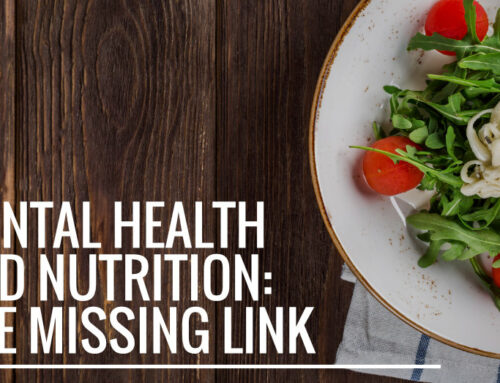
It’s no secret that eating too much sugar and processed foods can contribute to extreme health problems such as obesity and type II diabetes. This is common knowledge to many folks but what people do not realize is the impact of the unhealthy eating on their mental health. It is shown by the 75% overweight rate in our culture that most people do not pay attention to the impact sugar has on their bodies. With most people being creatures of habit this also gives you the answer of how much attention most people give to the impact of sugar and unhealthy eating has on their mental health. Peoples general mood and quality of life are impacted greatly by what they consume. Sweeteners, sugar, high fructose corn syrup and other sugary substitutes contribute directly to many mental health problems and studies have shown that they also may compromise cognitive abilities such as learning and memory.
Other known substances that contribute to behavioral changes and mental health problems are food additives, food colorants and preservatives in processed foods. Sugar needs to be added to this list. As stated above, sugar is also something we have to tune into because of the connection between sugar and chronic inflammation. Chronic inflammation in your body interrupts the normal functioning of your immune system and directly impacts brain functioning. Chronic inflammation is associated with heart disease, diabetes, arthritis, cancer and mental health problems.
Our bodies were never intended to handle the amount of sugar that people allow in their American diet. It is important to recognize the connection between the mind, the body and our Spiritual selves to start creating the health lifestyle we all desire. Here are 3 ways that sugar and unhealthy eating is impacting mental health in our culture today.
1. Depression
Studies have shown that countries with high sugar intake also have a higher rates of depression. That shouldn’t be a shocker after reading this post up to this point. High sugar consumption impacts the general mood and can drive the intensity of depression. There are also studies showing that incorporating the unhealthy dietary standards of our American culture directly impacts symptomology of depression, anxiety, schizophrenia, bi-polar, ADHD and obsessive compulsive disorder (OCD).
2. Anxiety
As stated before, anxiety is one of the mental health problem that shows an increase in symptoms with the consumption of sugar and unhealthy eating. Sugar and unhealthy eating is not the cause of anxiety but it sure contributes to the severity of fear, stress and worry. Physically, the “rush” and then the “crash” that sugar creates can amplify the feelings of panic and drive even more fear and worry. If you struggle with anxiety then limiting your sugar intake can be a helpful step for you.
3. Addiction
This seems to be a controversial topic but many studies point to sugar being an addictive substance. If you have been around children that have consumed a lot of sugary sweets you know by the look in their eyes and the sound in their voice just how addictive the “sugar rush” can be!
Authority Nutrition states:
When we eat foods that contain a lot of sugar, a massive amount of dopamine is released in an area of the brain called the Nucleus Accumbens.
When we eat these foods often and in large amounts, the dopamine receptors start to down-regulate. Now there are fewer receptors for the dopamine.
This means that the next time we eat these foods, their effect is blunted. We will need more junk food next time we eat in order to get the same level of reward.
Sugar and other junk foods, due to their powerful effect on the reward centers of the brain, function similarly to drugs of abuse like cocaine and nicotine (1).
If we want to take our mental health seriously we need to get real with our sugar intake!
Overall, having a fit mind, fit body and a fit spirit are created by having a fit lifestyle. Do yourself and your loved ones a favor today by making your health a priority. For some people you may want to jump in and make many changes and for others it may be gradual. Either way, you deserve to treat yourself with respect and do the right things for your body!








